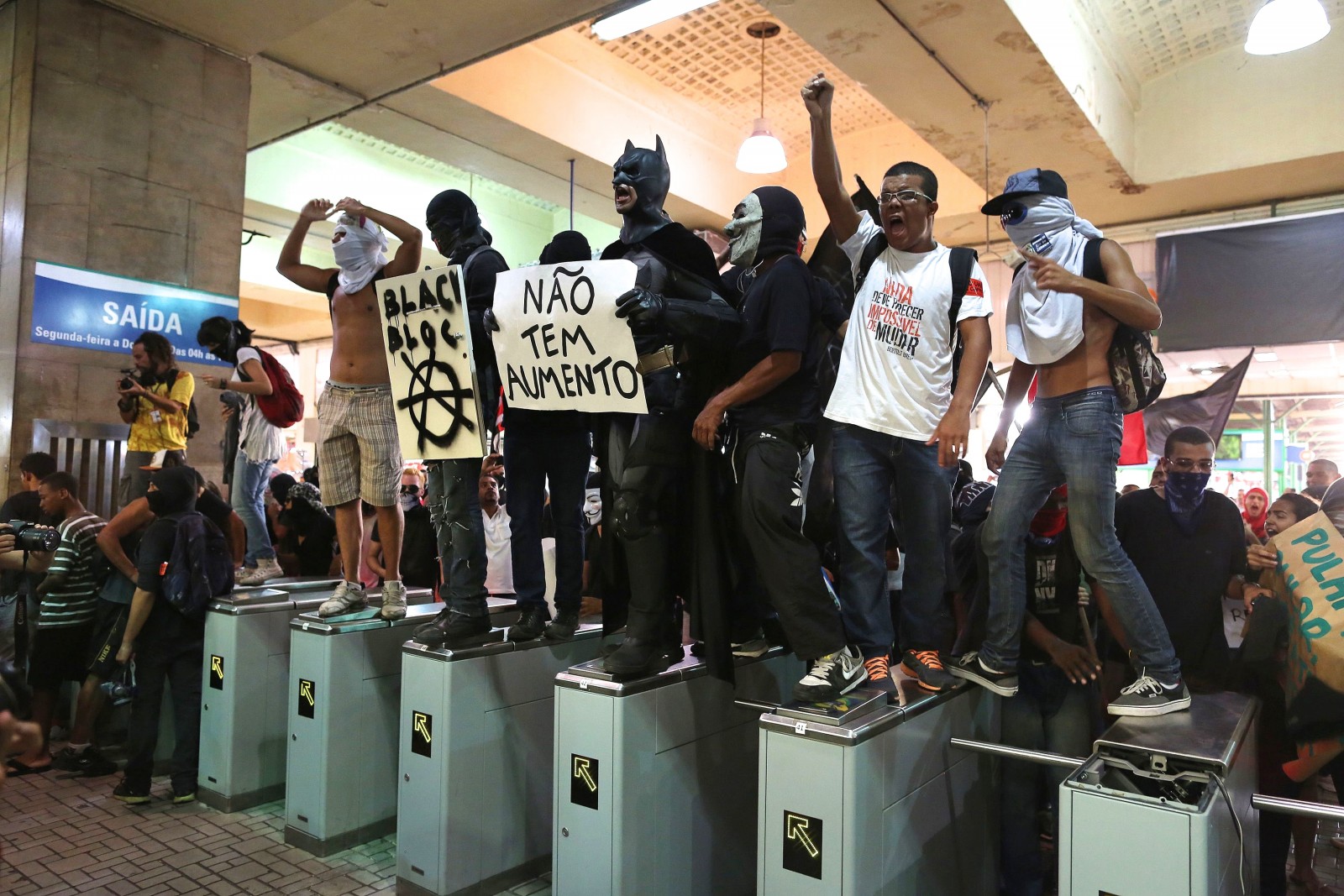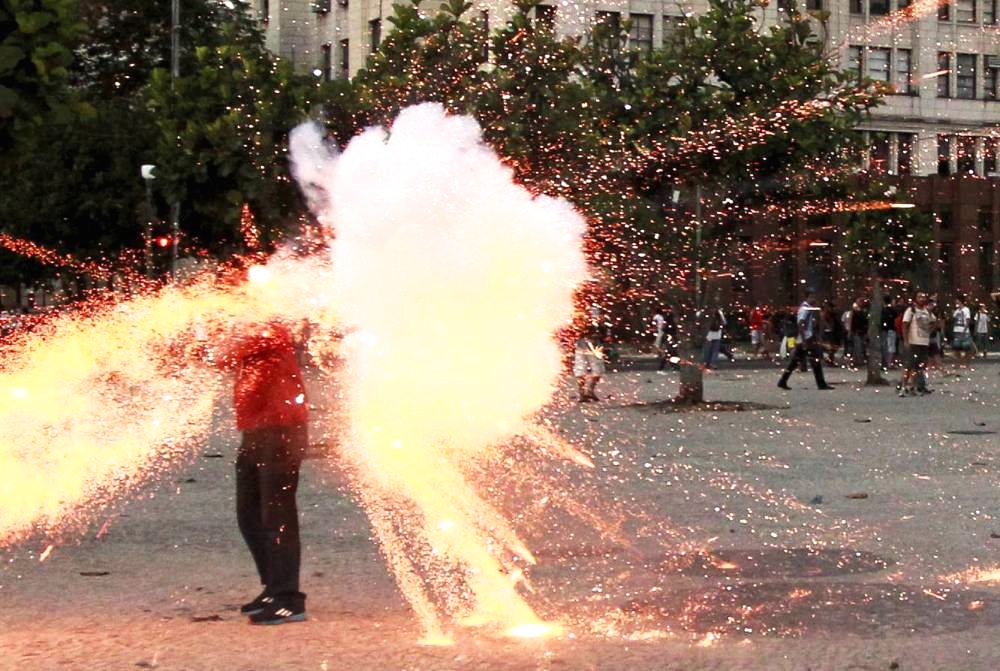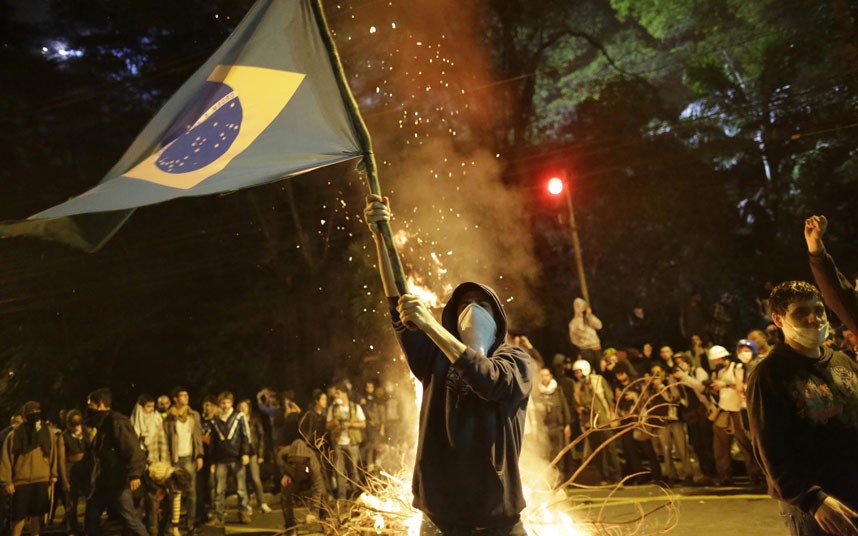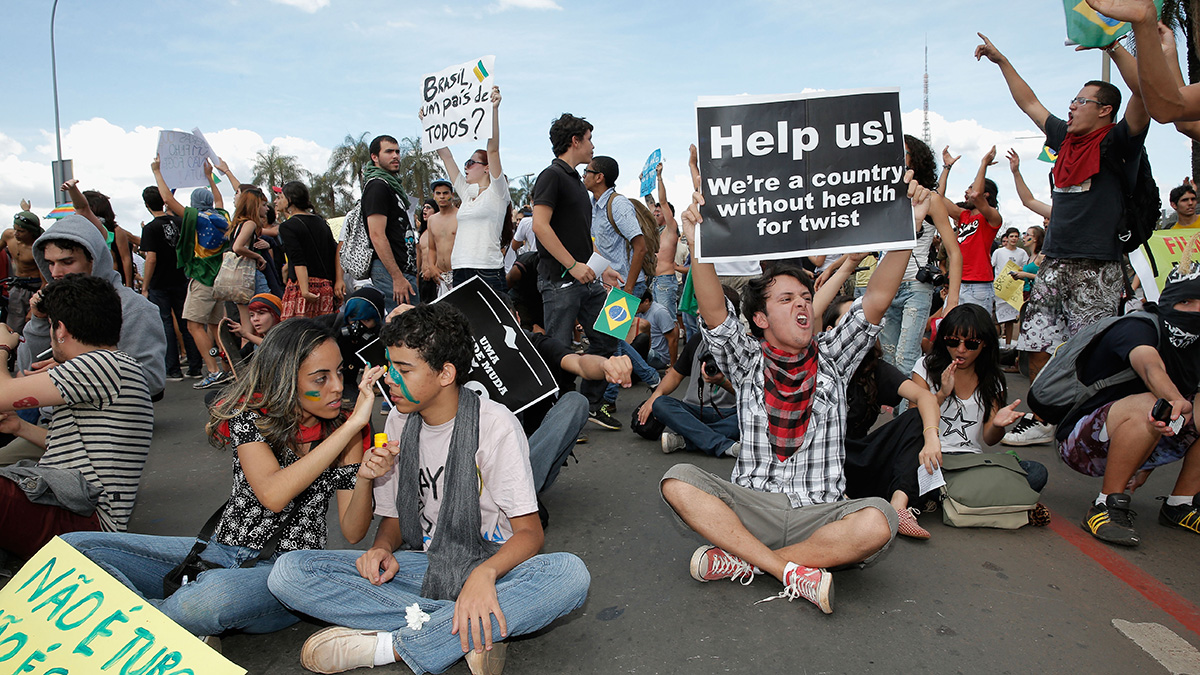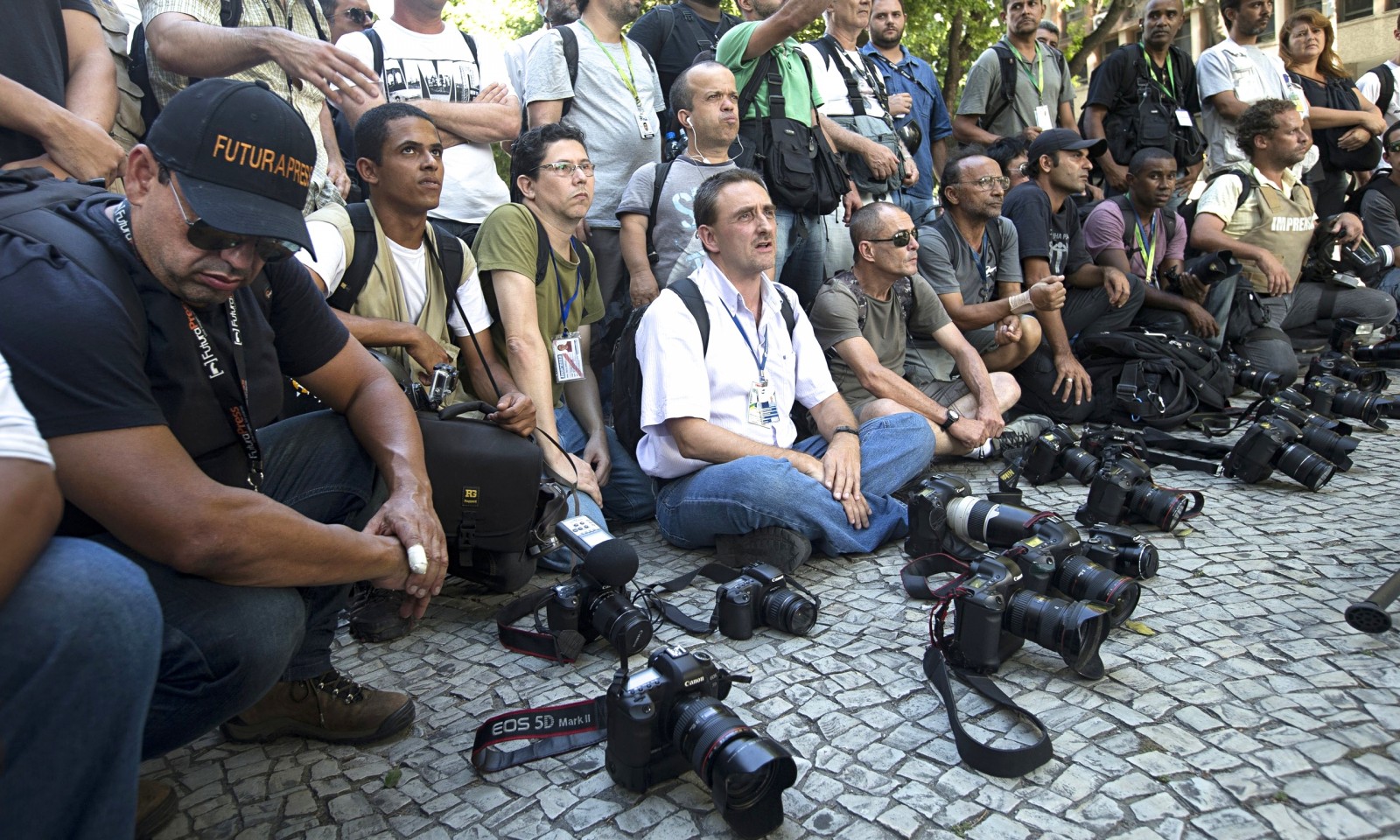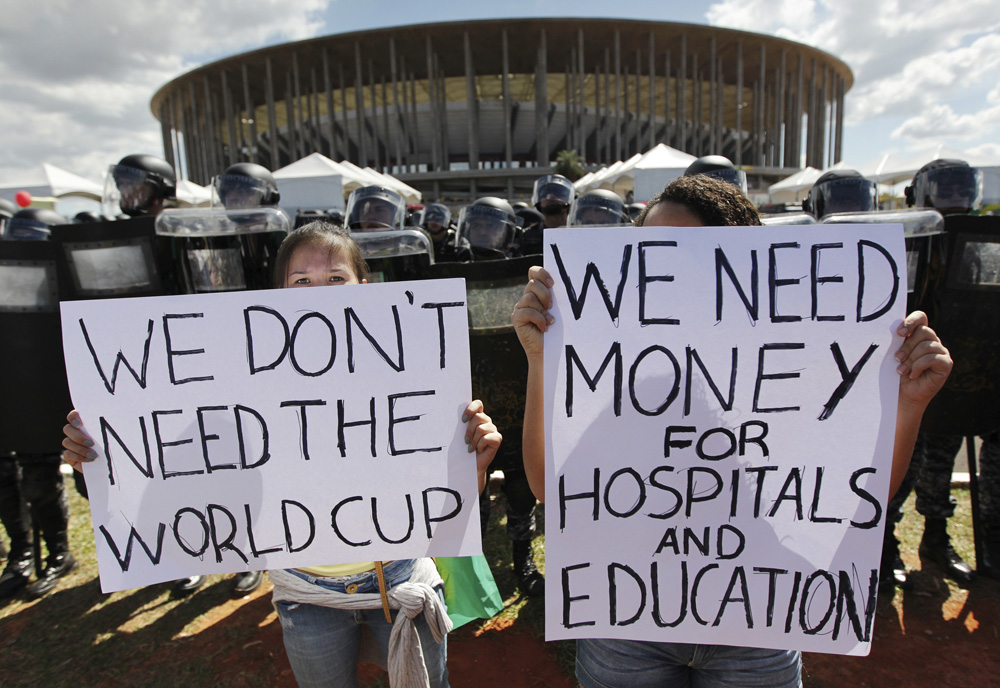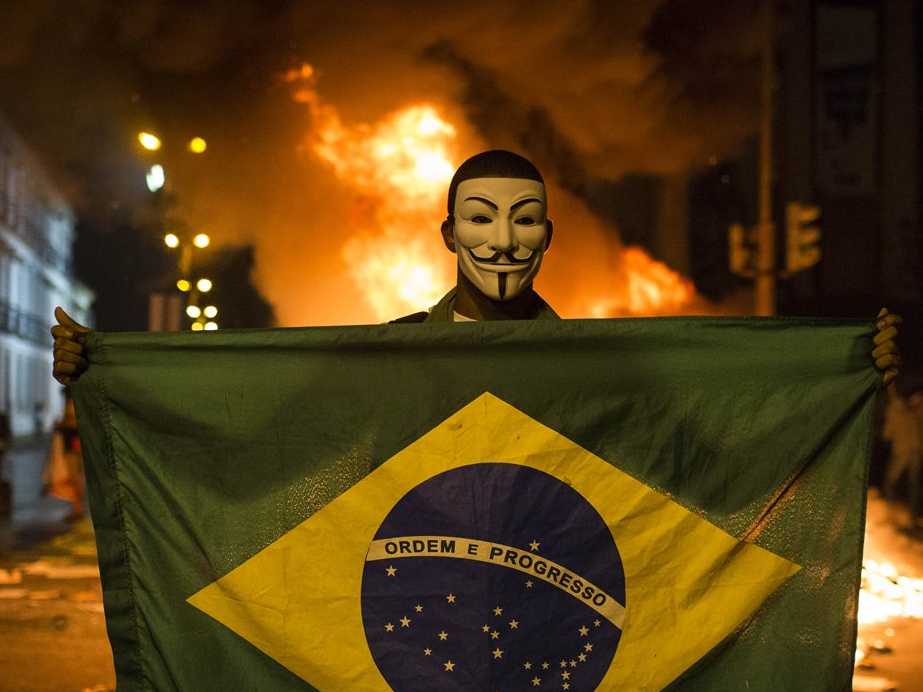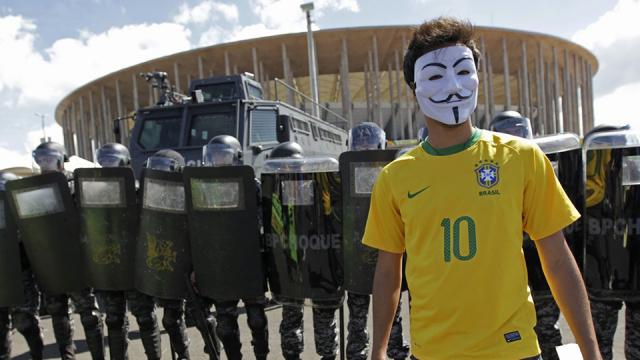
Brazil’s government and lawmakers are lashing out against their people in renewed tensions following the popular uprising in 2013 against corruption, poor public services, rising crime rates and huge expenses for the upcoming World Cup, scheduled to begin in June. The government’s current weapon of choice is propaganda – portraying legitimate protest as vandalism – and new legislation has been introduced that could potentially turn social movements into acts of terrorism.
Driving the recent threats of repression is the global soccer event that the country hosts this summer, which has been targeted by protesters due to its escalating costs as the country’s health, security and education systems fail to deliver. Since last June, corporate media and the government have escalated a campaign to undermine protests by focusing on isolated acts of “vandalism” that accompany street demonstrations, which have been otherwise largely peaceful considering the levels of violence Brazilians face in their daily lives.
In early February, the death of a news cameraman during a protest was heavily politicized to demonize demonstrators. Santiago Andrade, who worked for Bandeirantes television network, was struck in the head by a bottle rocket that had been supposedly lit by a protester. Corporate media dramatized the accident as an attack on free speech, though other people had died in previous violence carried out by the police against demonstrators.
There have been at least 118 cases of assault on journalists across Brazil – mostly at the hands of police acting out amid the unrest. Countless protesters have been hit by rubber bullets and tear gas during the protests, which have seen their number of supporters dwindle over the past months for fear of police brutality.
The national government is also toughening its act ahead of the World Cup. In December, Brazil’s Ministry of Defense issued an administrative ruling, citing a constitutional article that says armed forces can be used to keep internal law and order. The decision surprised many in the establishment – including political scientist Aldo Forzaniere, a long-time supporter of the ruling Workers’ Party.
Forzaniere pointed out in a recent blog post that at the time the law was written, progressive lawmakers in the party were against the use of the armed force to keep internal security because of its militarist implications.
But now even Congress, with support from the government, is resorting to terrorism fears as part of its strategy for social control. A bill currently being pushed through the House defines terrorism in vague terminology, potentially making any type of demonstration a terrorist act.
Called PL 499/2013, the legislation has been criticized as an attempt by authorities to intimidate the public and prevent democratic gatherings and protests.
The current draft includes penalties of as high as 30 years imprisonment for those deemed “terrorists.” In late February, several Brazilian congressmen entered a request to have the bill assessed by the Human Rights Commission before a vote takes place.
Though the leftist ruling government of President Dilma Rousseff does not want to be openly associated with this type of legislation – the party marketing is based on its opposition to militarism – it is eager to tighten current legislation through more repressive legal mechanisms.
“Current criminal legislation is enough to deal with any type of ‘terrorist’ action in Brazil,” said Rafael Custódio of the human rights campaign group Conectas.
“We don’t need new laws, especially those that are subjective and risk criminalizing social movements. Claims that we need to typify terrorism are unfounded since the country’s criminal code deals with all types of terrorist behavior,” Custódio said.
With a presidential election due to follow the World Cup, the national government is bent on keeping the image of the country untarnished by protests and the unsavory facts related to the games – including costs and human rights abuses.
“In the 12 host cities, what we have seen is evictions, violation of workers’ rights, laws of exception, destruction of public assets to give way to privatized cities and an increase of the sexual exploitation of minors,” according to Portal Popular da Copa e das Olimpíadas, an organization working to raise awareness of the negative social consequences of the football tournament and the upcoming Olympics, which the country will be hosting in 2016.
The organization has launched the hashtag #copaparaquem ("who is the world cup for?") while #naovaitercopa ("there will be no Cup) has become a much publicized slogan. The Workers’ Party has tried to discredit the movements by launching an affirmative counterpoint on social networks, #vaitercopa, which critics see as a government effort to forge a cheap, jingoistic link between football fandom and patriotism.
“In the year when the 1964 military coup turns 50, it is unfortunate that federal government marks the date with this type of legal package,” added Custódio. “Citizens will be less motivated to exercise their rights to free speech when authorities monitor their every step and they can fall foul of draconian laws, besides the possibility of becoming a victim of police violence.”
3 WAYS TO SHOW YOUR SUPPORT
- Log in to post comments


